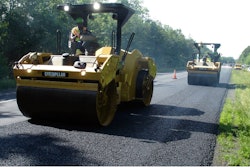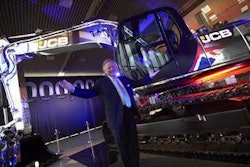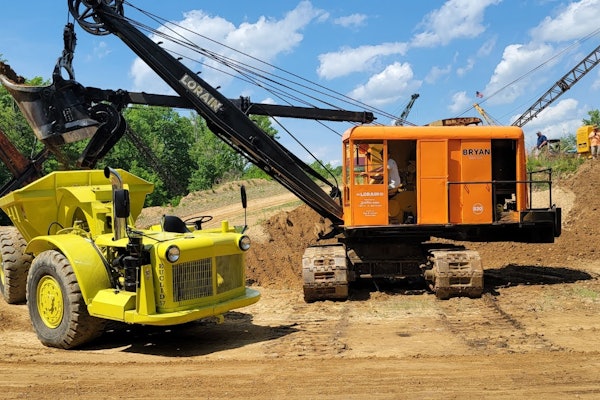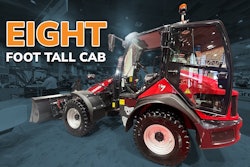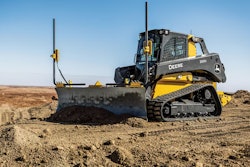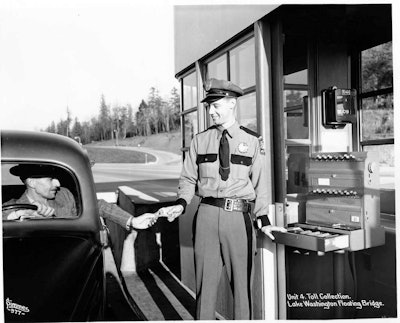 I-90 toll booth at Lacey V. Murrow Memorial Bridge, Circa 1940 (Photo: WSDOT / Flickr)
I-90 toll booth at Lacey V. Murrow Memorial Bridge, Circa 1940 (Photo: WSDOT / Flickr)The majority of Americans–71 percent–would be willing to pay a higher toll fare to save time, according to the results of the America THINKS 2013 Tolling Survey from HNTB Corporation.
The survey, which polled 1,000 Americans in late January, looked at ways Americans think of tolling, also found that more than 63 percent of respondents believe the nation can not continue to “build its way out of traffic congestion.”
According to the survey, respondents spend about $60.40 each month on gas taxes and a mere $19.80 on monthly tolls–less than their monthly utility bills–while the United States faves $846 billion in underinvestments for transportation infrastructure.
Among those surveyed, more than 43 percent were most willing to support tolls as road and infrastructure funding over a 10-year period versus other forms of revenue such as public transportation fares, sales tax and gax tax. When asked about long-term funding, tolls still outnumbered other types of revenue, with 36 percent of respondents choosing tolls as the preferred option.
Nearly half of respondents–46 percent–preferred new roads funded by tolls, while 25 percent preferred funding from an increased gas tax and 28 percent wanted no new roads.
When it comes to funding projects, respondents were willing to keep their options open. Most preferred to see funding for major transportation projects come from either increased tolls or gas taxes than to choose one or the other eliminate those projects altogether.
While 86 percent of respondents were willing to pay tolls, expectations of tolled roads are higher, with 93 percent expecting better conditions on tolled roads than non-tolled roads.
Of the improvements expected on tolled roads, 62 percent of respondents expected higher road quality and less potholes, 55 percent expect less congestion or traffic, 43 percent expect higher speed limits, 36 percent expect roadside cleanliness. 34 percent expect snow removal and 34 percent expect roadside assistance.
